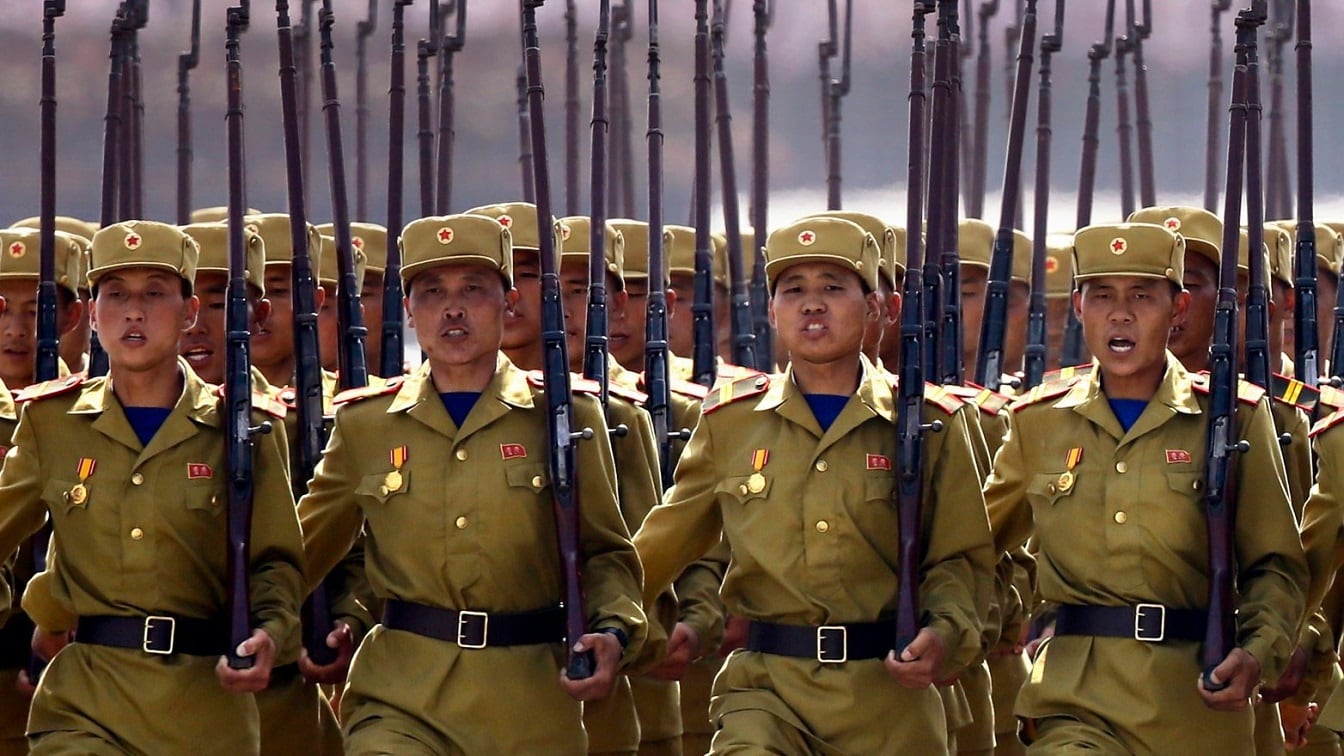If North Korea will Halt Its Provocations, then an End-of-War Declaration is Worth it: 1945 has hosted a vigorous debate on an ‘end of war’ declaration for the formally unresolved Korean War (here, here, here, here). The president of South Korea, Moon Jae-In, has sought this declaration to – at least rhetorically – end the Korean conflict and, ideally, re-start dialogue between the two Koreas and the United States.
The declaration itself is a curiosity. In international law, a war is provisionally halted with an armistice. A treaty then follows in which the political questions which lay at the root of the conflict are hammered out in an agreement binding on all parties. An armistice and a treaty can be separated by months or even years. In the Korean case, the armistice dates to 1953, but a formal treaty never came. Neither side won on the battlefield, so terms were elusive and the war remains formally unresolved.
Anxiety about what a Declaration Might Mean
Although Moon has pushed this declaration, significant opposition has arisen. No one is quite sure what this declaration would mean diplomatic or on the ground, as it is neither an armistice nor a treaty. It would seem to occupy a middle space between those two, but it is not clear what that actually means. Particularly, it is unclear what an ‘end of war’ declaration would oblige of all sides – not just the US, but also the two Koreas, and perhaps even China. So even though Moon said a month ago that all sides had agreed ‘in principle’ to a declaration, no text or signing has occurred. As Moon’s tenure ends in March, it now seems unlikely that this declaration will come into effect.
Cynics would call Moon’s scramble for a declaration either a bid for a legacy or an effort to help the candidate of his party win March’s presidential election. Legacy-building is almost certainly a part of it. Moon bet his presidency on a breakthrough with North Korea. This has not happened. United Nations sanctions strictly limit how much South Korea may interact with North Korea. Moon never acknowledged that, so whenever he proposed a major inter-Korean initiative, he collided with Western oversight of the sanctions. Moon promised a breakthrough he could not deliver, and his frenzied efforts to move Washington and the European Union to support sanctions rollback failed. So did the meetings, much-hyped by Moon, between former US President Donald Trump and North Korean supreme leader.
Worse, Moon did not campaign in 2017 on détente with North Korea. He ran on, and won as, a moderate social democratic voice on domestic issues. Moon’s mandate was to reign in skyrocketing costs for middle class families in areas like education and housing, reduce the power of Korea’s mega-corporate sector, foster greater social equity (‘economic democracy’), improve air and environmental quality, and so on. Moon might have left his mark on these more surmountable domestic issues, but now history’s judgment of his presidency will turn on his (failed) foreign policy venture with North Korea.
Would an End of War Declaration End North Korean Provocations?
There is one last-ditch chance to turn around the failed EoW idea – a North Korean agreement to cease, after many decades, its provocations along the inter-Korean border as part of the declaration. Indeed, an End of War declaration, in its very name, suggests an end to these attacks, which are the most obvious manifestation of the lack of a treaty.
The current discussion of the declaration does not raise this idea. In fact, proponents of the declaration suggest that only US/South Korean concessions, most notably the dissolution of the UN Command on the peninsula, would flow from it. There is, then, no good reason why the US or South Korea would sign the declaration.
Yet North Korea has a long history of provocations and incidents along the border. So many in fact, that the Center for Strategic and International Studies hosts a searchable database of them. Many of these provocations have resulted in deaths (here are two well-known ones). In 2010, two major North Korean attacks in less than a year nearly pushed the countries to war. Anxiety over North Korea’s low-intensity conflict keeps the border tense and has fueled resistance to Moon’s declaration and any retrenchment or disarmament.
North Korean restraint on the border could undercut that resistance and build a geostrategic, rather than vague diplomatic, case for the declaration. If Moon could actually pull a credible commitment out of Kim to no longer lash out at South Korean people, installations, and platforms, that would be a huge achievement. Many would doubt North Korea would keep such a promise, of course. But it is a shame Moon never even tried. Ending the war implies that North Korea would finally halt its various asymmetric, kinetic-but-not-quite-all-out-war actions against the South. Yet this rather obvious idea has strangely, unfortunately, never entered the End of War Decleration discussion these last few months.
Dr. Robert E. Kelly (@Robert_E_Kelly; website) is a professor of international relations in the Department of Political Science at Pusan National University. Dr. Kelly is now a 1945 Contributing Editor as well.

